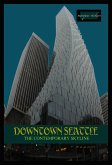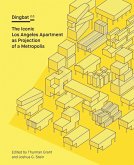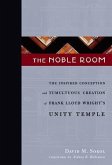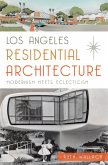Vickers photographs thirty-six of his standing projects and provides background details on their origins and design.
Following four years of steady commissions in Seattle, Parkinson uprooted his practice to Los Angeles in 1894 following a series of financial reversals. Over the next forty years, he was credited with over 200 projects. Fifty remain today creating a blueprint for twentieth century Los Angeles modernism. Despite his achievements, output and recognition during his era, his name is nearly forgotten amongst memorable architects.
Parkinson died in 1935 and both his son and grandson, who carried on his practice died within in twenty years. Their premature passing contributed towards his name receding from public recognition. Many of his prominent skyscrapers formed the core of Los Angeles' downtown financial, theatre and shopping districts. The decline of these sectors during the 1960s into squalor and vice further diminished his reputation.
A current revitalization of Spring and Broadway Streets has renewed appreciation for Parkinson's classic designs and aesthetic contributions.
The edition traces the improbable evolution of a master architect from his modest Lancashire, England background. Parkinson left school at thirteen, apprenticed with a Bolton architect while studying evenings at the local Mechanics Institute. His eventual immigration to America included formative stops in Winnipeg, Canada, Minneapolis and Napa. His genius and innovation first emerged in Seattle through Romanesque Revival styling. His classic Los Angeles designs were articulated through Beaux Arts, Spanish Renaissance and Art Deco.
Photographed and elaborated upon in "John D. Parkinson: Eternally Elevating the Los Angeles Skyline"
Seattle Years and Projects (1889-1894):
Interurban Building
B. F. Day Elementary School
Alexander Hall
Garrand Building
Los Angeles Years and Projects (1895-1939)
Homer Laughlin Building (Los Angeles' first steel-reinforced and fireproof structure)
O.T. Johnson Building
Brady Building (Los Angeles' first skyscraper)
Trustee Building
Security Bank Building
Alexandria Hotel
Bullock's Department Store
Yorkshire Apartments
Pacific Southwest Bank
Pershing Square Renovation
Rowan Building
A.G. Bartlett Building
Washington Building
Junipero Serra Building
Crocker Bank Building
Rosslyn Hotel and Rosslyn Annex
Los Angeles Theatre Center
Security Trust and Savings Building
Los Angeles Memorial Coliseum
Metropolitan Annex Building
Hotel Hayward Addition
Southern California Gas Company Complex
USC Gwynn Wilson Student Union Building
Los Angeles City Hall Complex
Title Insurance and Trust
USC Zumberge Hall of Science Building
USC George Finley Bovard Building
Bullock's Wilshire Department Store
Los Angeles Stock Exchange
Banks and Huntley Building
Title Guarantee and Trust Building
Dieser Download kann aus rechtlichen Gründen nur mit Rechnungsadresse in A, B, CY, CZ, D, DK, EW, E, FIN, F, GR, H, IRL, I, LT, L, LR, M, NL, PL, P, R, S, SLO, SK ausgeliefert werden.









